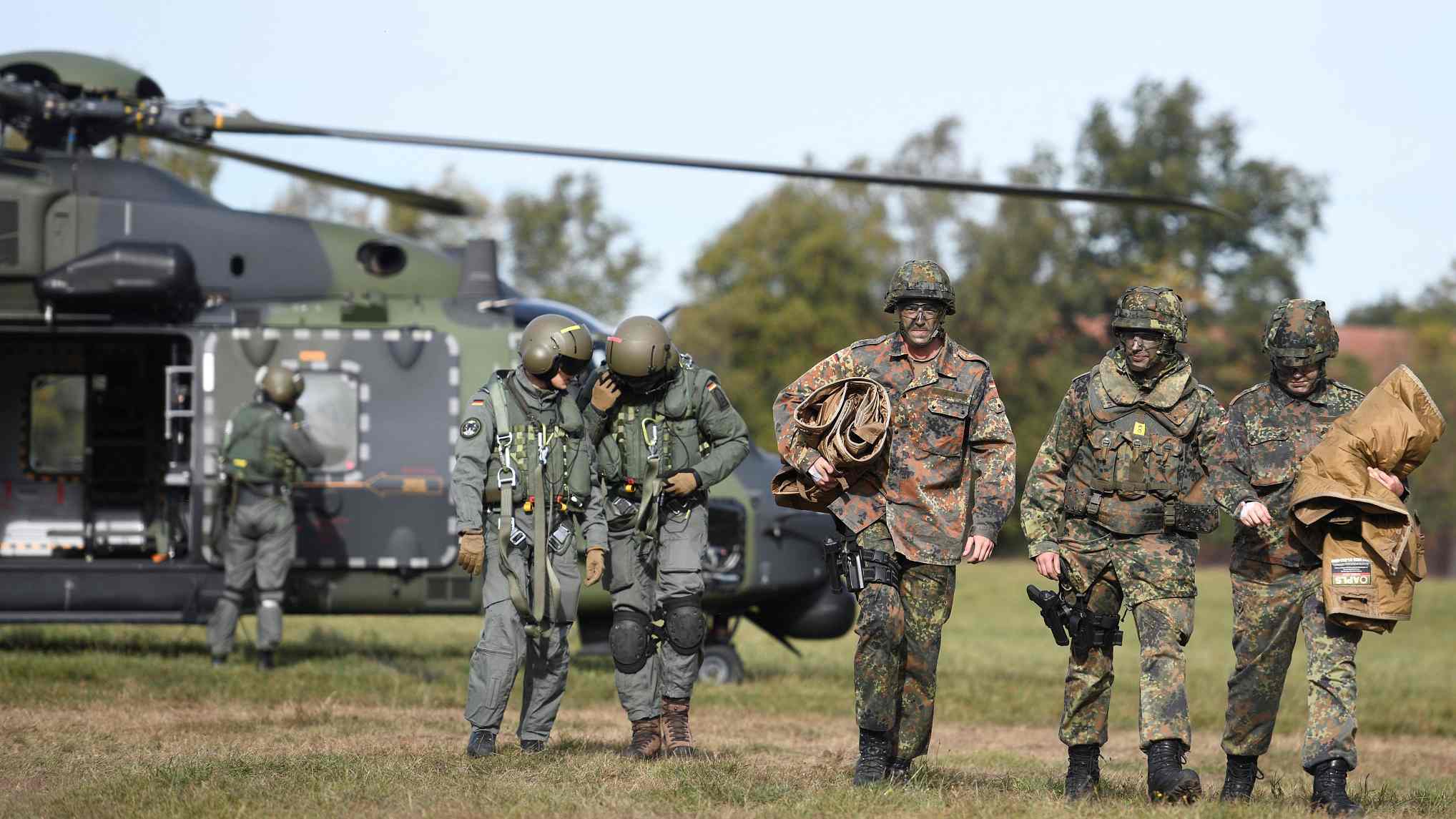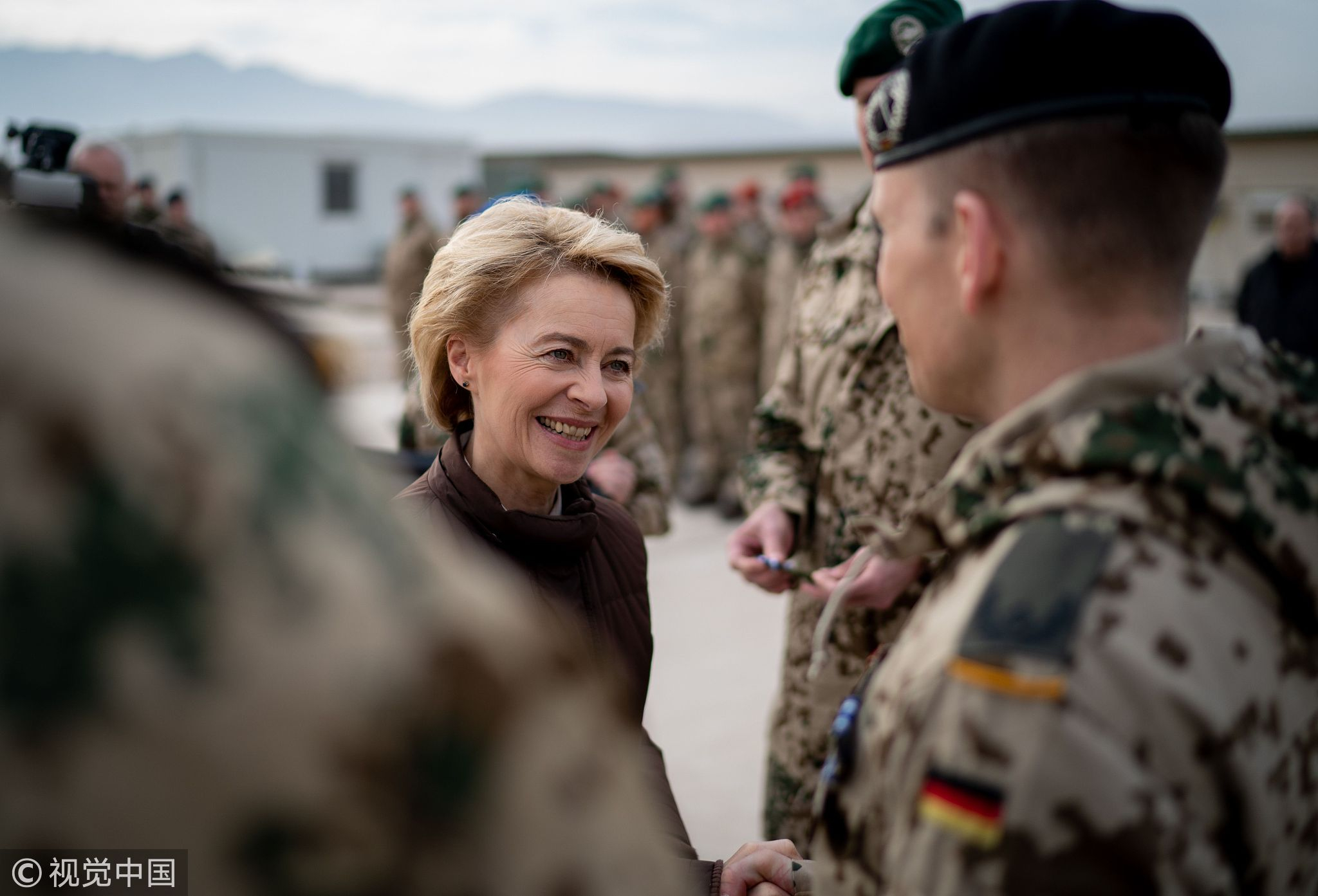
World
11:06, 28-Dec-2018
German army plans to recruit EU citizens
Updated
10:11, 31-Dec-2018
CGTN

Germany's military is planning to recruit EU citizens to fill expert posts seven years after scrapped conscription.
The German military, or Bundeswehr, has stepped up its recruitment efforts as part of a broader reset since 2014.
Last year, Germany said it would increase the size of its armed forces to 198,000 active soldiers by 2024 from 179,000.
Defense Minister Ursula von der Leyen wants to recruit Poles, Italians and Romanians, according to a ministry document.

German Defense Minister Ursula von der Leyen (C) awards medals to German soldiers during her visit at Camp Marmal in Mazar-i-Sharif, Afghanistan, December 18, 2018. /VCG Photo
German Defense Minister Ursula von der Leyen (C) awards medals to German soldiers during her visit at Camp Marmal in Mazar-i-Sharif, Afghanistan, December 18, 2018. /VCG Photo
The document also said that some 255,000 Poles, 185,000 Italians and 155,000 Romanians, aged between 18 and 40, live in Germany - about half all foreign EU nationals. If 10 percent of them could be interested in the Bundeswehr, that could generate 50,000 new applicants.
It did not say if they would serve alongside Germans in regular regiments, or would form theirs on units akin to the French Foreign Legion.
Pressure on Berlin mounted again in July when U.S. President Donald Trump told a NATO summit that Washington could withdraw support for the alliance if Europe did not boost military spending.
The Defence Ministry wants to limit the group of potential recruits to those who have already lived in Germany for several years and speak fluent German.

Tanks of the German army Bundeswehr take part in an exercise during a media day in Munster, Germany, September 28, 2018. /VCG Photo
Tanks of the German army Bundeswehr take part in an exercise during a media day in Munster, Germany, September 28, 2018. /VCG Photo
Such limits would aim to minimize concern among other European Union countries about Germany luring their potential soldiers by offering better pay.
The ministry had sounded out defense attaches in other EU countries about the plan in recent months with “very different results”, with Eastern European countries particularly worried about the impact on their own recruitment.
Polish Foreign Minister Jacek Czaputowicz said that military service was “closely tied to nationality”.
To help attract new recruits, the Bundeswehr is also targeting youngsters in Germany, where the army remains a sensitive career choice for more than 70 years after World War Two.
(Cover photo: Soldiers of German army Bundeswehr take part in an exercise during a media day in Bergen, Germany, September 26, 2018. /VCG Photo)
Source(s): Reuters

SITEMAP
Copyright © 2018 CGTN. Beijing ICP prepared NO.16065310-3
Copyright © 2018 CGTN. Beijing ICP prepared NO.16065310-3